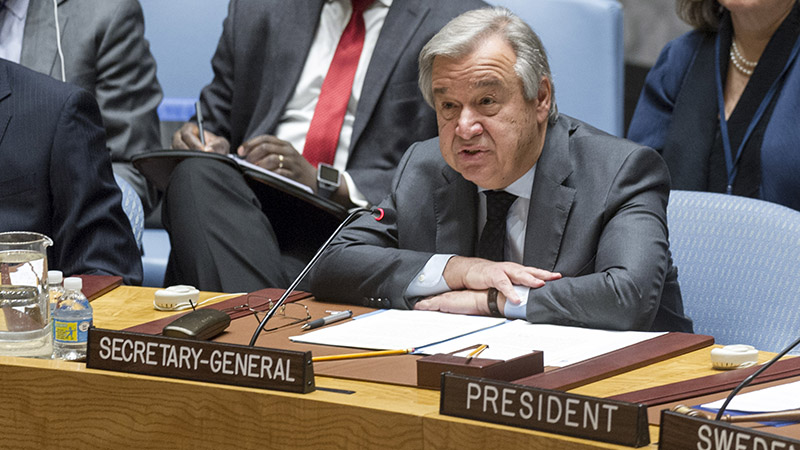The UN is set to play a more active role in conflict prevention says its new boss Antonio Guterres – and that means a drive to tackle climate change.
Ban Ki-moon’s successor offered a brief outline of his goals to the UN Security Council this week, underlining its mandate to prevent conflict and sustain peace.
Wars, said Guterres, “are fuelled by competition for power and resources, inequality, marginalization and exclusion, poor governance, weak institutions, sectarian divides.
“They are exacerbated by climate change, population growth and the globalization of crime and terrorism. With so many factors at work, it takes very little to trigger a crisis that can engulf a country or a region, with global consequences.”
Environment dominates threats to global economy – @wef report: https://t.co/qZNydbHYYx pic.twitter.com/4f071RY0mp
— Climate Home News (@ClimateHome) January 11, 2017
The former Portuguese prime minister announced his special policy advisor – South Korean diplomat Kyung-wha Kang – was charged with joining up UN conflict prevention efforts. That will involve a new push on peace, security, sustainable development and human rights, he added.
Conflicts linked to environmental degradation have been reported across the world, from the Peruvian Amazon to the Sahel and Syria.
Incoming US defence secretary, James ‘Mad dog’ Mattis is one military mind who understands the links between climate change and conflict, a fellow Marine Corps general told Climate Home.
“There’s a fair percentage of conflicts today that have a linkage to climate change that was not previously there,” said Stephen Cheney, now retired.
“These include the Arab Spring and Syrian civil war – two insurrections that define world politics and security today.”
Weekly briefing: Sign up for your essential climate politics update
